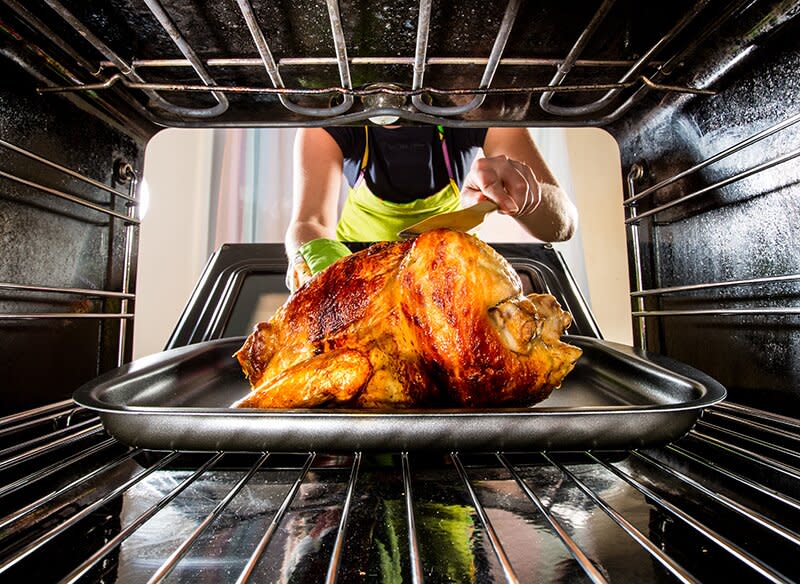Surprise! Thanksgiving Is Actually Good for You

Shutterstock
Treating yourself helps you stay on track. The key to diet success? Not labeling foods as "off limits," says research published in the American Journal of Clinical Nutrition. "There is no way to sustain constant dieting without a cheat day," says Nancy Redd, author of Body Drama and Diet Drama. "Thanksgiving is one day. Work hard the rest of the year, and just enjoy yourself when the holiday comes." Remember: A successful diet is a sustainable dietâ€"not a depriving one. "Plus, numerous studies show that the stress associated with thinking about overeating is actually what causes overeating in the first place."
Related: In Defense of Cheating on Your Diet
It helps you practice extending your meal. Taking longer to eat your food results in fewer calories consumed overall, according to a study published in the American Journal of Clinical Nutrition. Sure, you'll still eat more on Thanksgiving (because Thanksgiving), but it's a lesson you canâ€"and shouldâ€"apply to your daily life. Make a point to extend your meals and truly focus on the food you're eating and company you're sharing it with, says Redd.
You're more mindful. Mindful eating (basically the exact opposite of that salad scarfdown that happens at your desk everyday) has been linked to lower BMIs. Pausing to reflect on your meal helps you savor it and makes you more aware of how much you're consuming.
Turkey is a health food. If the pilgrims passed out greasy slices of cheese pizza for the first Thanksgiving, that'd be one thing. But turkey is a nutritionally-sound dinner staple you can feel good about. Packed with protein, selenium, B vitamins, and amino acids that help balance your mood, shaving off a slice or two can go a long way when it comes to a healthy diet.
Sharing meals is good for your health (and waistline). Rutgers University researchers found that families that eat together often eat healthier, especially when mediums like TV, and smartphones are out of the picture. What's more, children who regularly ate with their family had lower BMIs than those who didn't, so don't excuse the little ones. The key, of course, is keeping up those positive family vibes year round.
Being thankful encourages you to take better care of yourself. Grateful people are more likely to take care of their health by keeping up with annual doctor's appointments, says a sudy published in Personality and Individual Differences. Be thankful for your body, and all it can do, and chances are you'll treat it with respect.
You'll sleep better. And not because you're in a tryptophan turkey coma. Those who feel grateful enjoy better sleep quality and fall asleep faster, says astudy published in the Journal of Psychosomatic Research.
Time off of work may help you live longer. Thanksgiving is the perfect time for a mental health day pre or post-holiday. A past Framingham Heart Study found that women who took at least two vacations a year were eight times less likely to suffer from heart disease or a heart attack. And people who took time off of work were happier than those who did not, with a feeling of residual happiness lasting for up to two weeks, says a study published in Applied Research in Quality of Life. And that's definitely something to be thankful for.

